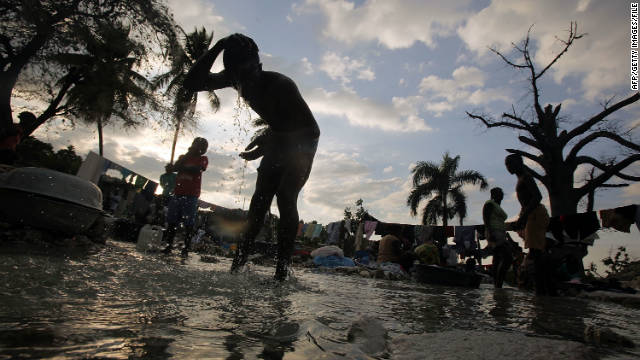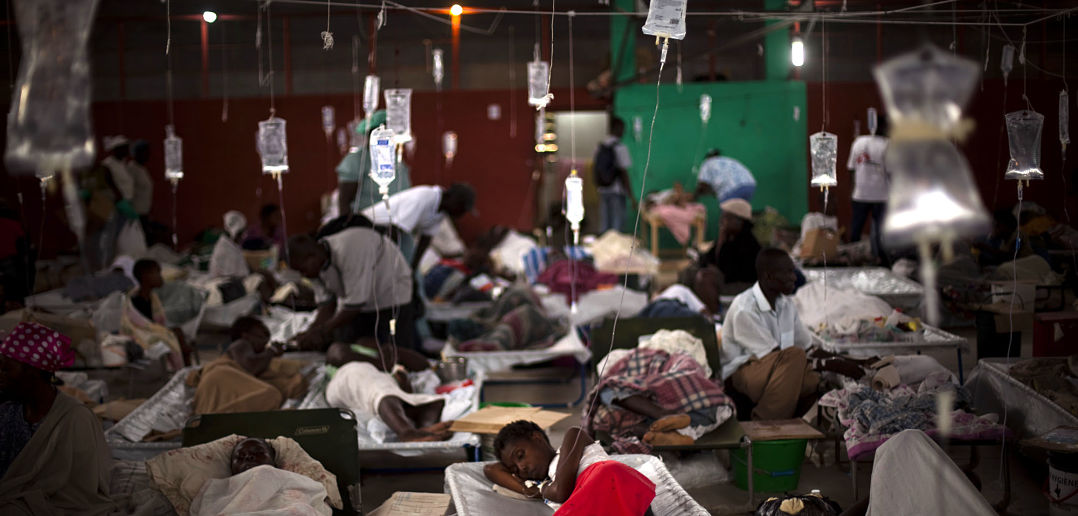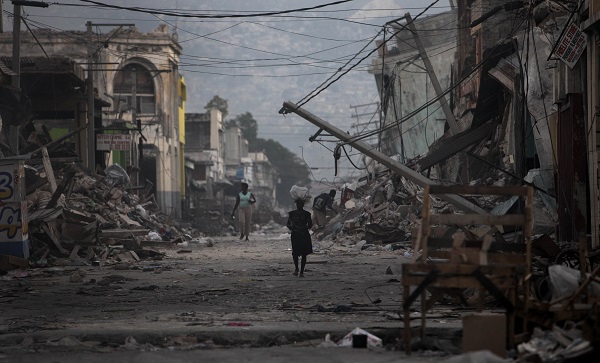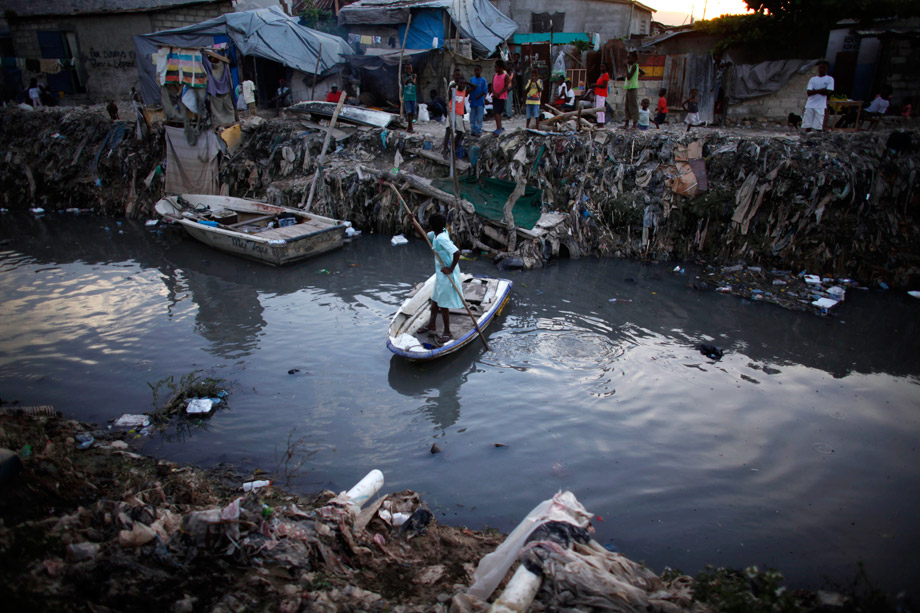
Haiti – Since 2010 nearly 770,000 people, 8% of the population have become infected in what many scientists call “the largest cholera outbreak in modern times.” The disease native to India is said to have been spread to the small island countries sometime in 2010 while United Nations peacekeepers from Nepal were serving in the area. It has been reported that the camp hosting United Nations workers emptied raw waste into the Artibonite river, the countries largest river, where it then traveled down stream infecting thousands.

To date it is estimated that nearly 9,200 people have died as a result, though new evidence indicates that the death total in some regions may be three times higher than previously recorded. In 2016 alone it has been reported that 7,800 new people have become infected, over 100 of which has died. A new study to be released in this months Emerging Infectious Disease Medical Journal reveals that “nearly three times more cholera deaths occurred in the first six months of the epidemic than officially recorded. In some hard-to-reach villages, researchers found, cholera killed 1 in every 20 residents in the early months of the outbreak.” Dr. Francisco Luquero of Doctors Without Borders goes on to surmise that “It is likely that many other areas in the country suffered similar rates of death occurrence.”

As a result the families representing more than 5,000 of the dead victims have fired a class action lawsuit against the United Nations. The terms of the lawsuit call for the “U.N. to end cholera by installing a national water and sanitation system; pay reparations to cholera victims and their families; and publicly apologize for bringing cholera to Haiti.” In 2015 the lawsuit was thrown out of court by a New York state judge who ruled that “international treaties immunize the U.N. from lawsuits.” The families have appealed this decision and as of March 1, 2016 a panel of three federal appellate court judges held a hearing to discusses the U.N.’s liability in the Haitian epidemic.
There is little doubt of the U.N’s culpability in this matter, in fact the independent researchers hired by the U.N. to investigate the outbreak have even concluded that the organization is most likely the primary cause. Daniele Lantagne of Tufts University, one of the independent experts hired by the U.N. surmises that:
“I and the panel believe, and the scientific consensus is, that the most likely source was a peacekeeper or peacekeepers. There is not an alternative hypothesis that is credible. DNA analysis strongly suggests this outbreak was probably started by one or very few infected, asymptomatic individuals — I would guess one.”

As the United Nations hosts their international headquarters in New York City, the organization has the support of the United States government. A US attorney representing the United Nations, Ellen Blain has defended the organization saying “we certainly recognizes that this is an unfortunate and tragic humanitarian catastrophe…but the U.N. has absolute immunity … for a very important reason.” The reason she goes on to explain, if we set a precedent and force the U.N. to pay compensation to these families it would set off a chain reaction opening the flood gates for people the world over to sue the U.N. – potentially bankrupting one of the most impactful humanitarian organizations in the world.
The attorney representing the victims families, Beatrice Lindstrom argues that “the U.N. forfeited its legal immunity when it failed to launch an internal process to adjudicate the plaintiffs’ claims, as they say its own commitments require. The U.N.’s conditional immunity does not authorize impunity.”
The appellate court judges have heard arguments from both sides and the case is still ongoing. For more information this topic please read David Gilkey’s article for NPR: http://www.npr.org/sections/goatsandsoda/2016/03/21/471256913/why-the-u-n-is-being-sued-over-haitis-cholera-epidemic
This article (Haiti Sues U.N. For Cholera Outbreak | U.N. Claims “Absolute Immunity”) is free and open source. You have permission to republish this article using a creative commons license with attribution to the author and AnonHQ. Join the conversation at www.anonboards.com




